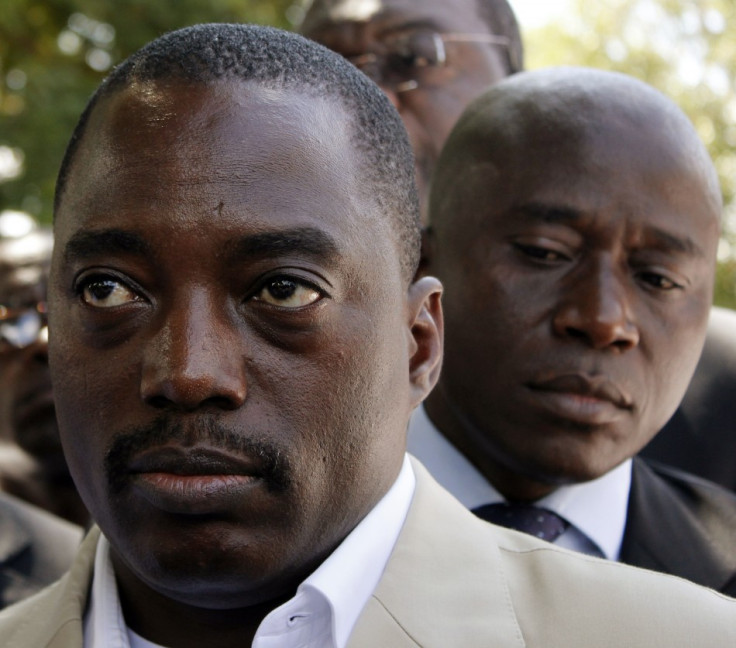Kabila Re-Elected President of DR Congo

Joseph Kabila has been re-elected President of the Democratic Republic of Congo with 49 per cent of votes, according to the electoral commission. The main opposition candidate, Etienne Tshisekedi, achieved 32 per cent of votes.
The announcement has been delayed since Tuesday, with election officials blaming logistical problem. The BBC reports that in the eastern city of Goma people started to celebrate.The results still have to be ratified by the Supreme Court.
Early indications showed President Joseph Kabila poised for re-election with 46.4 percent of the votes, as ballots from two-thirds of polling stations had been counted. Among the 10 opposition candidates, Etienne Tshisekedi, his chief rival, was reported winning 36.2 percent of the votes.
"Everyone's waiting for the results. We've done our own compilation and we know that President Kabila has won, but the announcement must be credible," said Aubin Minaku, secretary-general of the ruling coalition.
Opposition candidates have rejected the early tallies, charging electoral fraud at the ballot box and calling on supporters to reject the process. They welcomed the delays to the results, hoping that it will give an opportunity for the system to become more transparent.
"The reality is that (the electoral commission) is bending under the pressure of the population. It's not easy to publish a lie," said Jacquemain Shabani Lukoo, secretary-general of the opposition Union for Democracy and Social Progress.
The International Crisis Group, a Brussels-based organisation that seeks the peaceful resolution of conflicts around the world, warned of the risk of a political crisis, which could see Congo tip back into widespread violent confrontations. "Counting has been as unruly as voting and dangerously opaque. Criteria for disqualifying ballots are unclear, with Kinshasa - an opposition stronghold - disproportionately affected," the group said in a statement.
The organisation urged the election commission to count ballots transparently and allow independent verification both for presidential results and legislative contests. It also called on international institutions, such as the United Nations, the African Union and the European Union, to send a team to mediate between the opposing factions.
"A power-sharing deal should be avoided, but mediators should explore options for alternative dispute resolution or independent oversight of existing mechanisms - possibly under African Union auspices and with international support - given distrust in the responsible Congolese institutions," the statement added.
Suspicions of fraud triggered violence at polling stations.
The organisation Human Rights Watch reported people attacking election officials whom they believed to be responsible for fraud. In some areas, there were attempts to intimidate voters, strongly advising them to select a particular candidate. Strongmen in some villages forced people to cast their votes for Kabila, instructing and sometimes escorting them to the polling stations.
Members of a Ugandan rebel group also attacked some voters on their way to a polling station near Faradje, Orientale province.
Human rights organisations have condemned violence stemming from the elections, reporting that pro-Kabila guards shot and killed at least 18 opposition protesters and wounded another 100.
"Tensions are running high given the logistical complications of organising the election," said Anneke Van Woudenberg, senior Africa researcher at Human Rights Watch. "Security forces should be protecting people, not fuelling the violence."
The worst incident happened at Kinshasa's airport on Nov. 26, when the Republican Guard fired into a crowd of opposition supporters who had gathered to escort Tshisekedi to an election rally.
At least 12 opposition supporters were killed and 41 others suffered serious injuries during the incident.
© Copyright IBTimes 2025. All rights reserved.





















